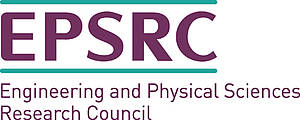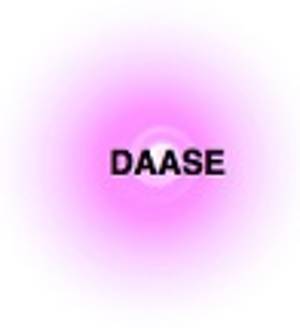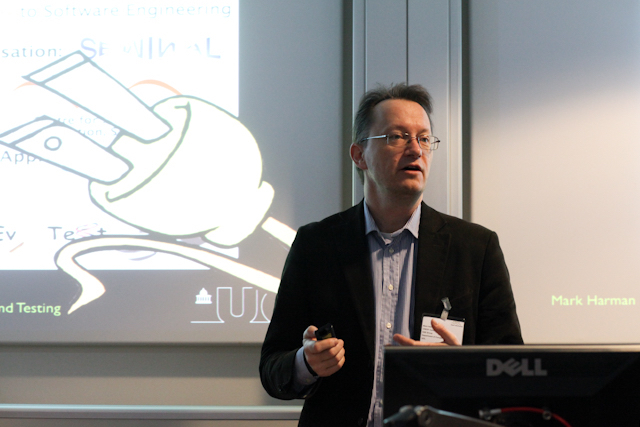39th CREST Open Workshop
Measuring, Testing and Optimising Computational Energy Consumption
Date: 23 – 24 February 2015
Overview:
Estimates for the amount of global energy consumed by computation may very, but no commentator doubts its increase, with serious environmental implications. Users are also frustrated, all too aware of the computational limitations of inadequate battery life. Indeed, the largest component in many mobile devices is the battery. However, despite these pressing environmental and user needs, there remains a lack of work on computational energy testing and optimisation. The 39th CREST Open Workshop (COW) workshop will bring together those working on testing and optimisation with those working on computational energy measurement and its applications to investigate and develop computational energy testing and optimisation research and practice. Funding for the workshop is provided by the EPSRC projects GISMO (http://www0.cs.ucl.ac.uk/staff/W.Langdon/gismo/) and DAASE (http://daase.cs.ucl.ac.uk).
Programme:
| ++++ Day 1 - 23rd February 2015 ++++ |
|---|
| 09:30 Arrival, Coffee and Pastries |
| 10:00 Welcome and introductions (Videos: 240p, 360p) |
Mark Harman, CREST Centre, SSE Group, Department of Computer Science, UCL, UK |
| 10:30 Can Search-Based Testing be Used To Automate Energy testing? |
| Phil McMinn, University of Sheffield |
| 10:50 Discussion |
| 11:15 An Empirical Study of Practitioners' Perspectives on Green Software Engineering (Slides, Videos: 240p, 360p) |
| James Clause, University of Delaware |
| 11:35 Discussion |
| 12:00 SEEDS: A Software Engineer's Energy-optimization Decision Support framework (Slides, Videos: 240p, 360p) |
| Lori Pollock, University of Delaware |
| 12:20 Discussion |
| 12:45 Lunch at the venue |
| 13:45 Energy Transparency from Hardware to Software (Slides, Videos: 240p, 360p) |
| Kerstin Eder, University of Bristol |
| 14:05 Discussion |
| 14:30 Hyper-quicksort: energy efficient sorting via the Templar framework for template method hyper-heuristics |
| Jerry Swan, University of Stirling and Nathan Burles, University of York |
| 14:50 Discussion |
| 15:15 Refreshments |
| 15:45 Automated software testing to discover energy inefficiencies in mobile apps (Slides, Videos: 240p, 360p) |
| Sudipta Chattopadhyay, Linkoping University |
| 16:05 Discussion |
| 16:15 Optimising MiniSat's Energy Consumption using Genetic Improvement (Slides, Videos: 240p, 360p) |
| Bobby Bruce, CREST Centre, SSE Group, Department of Computer Science, UCL, UK |
| 16:35 Discussion |
| 17:00 Wrap up |
| 17:30 Close of day 1 |
| ++++ Day 2 – 24th February 2015 ++++ |
| 09:30 Arrival, Coffee and Pastries |
| 10:00 Evolving Power-Efficient RNGs (Slides, Videos: 240p, 360p) |
| David White, University of Glasgow |
| 10:20 Discussion |
| 10:45 A Hierarchical Approach for Energy-efficient Scheduling of Large Workloads in Multicore Distributed Systems (Slides, Videos: 240p, 360p) |
| Bernabe Dorronsoro, University of Cadiz |
| 11:05 Discussion |
| 11:30 Refreshments |
| 12:00 Breakout session |
| 12:45 Lunch at the venue |
| 13:45 Feedback from breakout |
| 14:15 Green Mining and the perils of evolving energy profiles (Slides, Videos: 240p, 360p) |
| Abrham Hindle, Univeristy of Alberta |
| 14:35 Discussion |
| 15:00 Understanding and Improving the Energy Efficiency of Hybrid Mobile Applications (Slides, Videos: 240p, 360p) |
| William Halfond, University of Southern California |
| 15:20 Discussion |
| 15:45 Refreshments |
| John Clarke, University of York |
| 16:35 Discussion |
| 17:00 Hardware variability may be greater than algorithmic improvement |
| Derek M Jones, Knowledge Software Ltd |
| 17:20 Discussion |
17:45 Close of day 2
This workshop is supported by the following sponsors:
Photos:
|
This workshop is supported by the following sponsors:
Sponsored by the DAASE Programme Grant
Registered Attendees:
1. Etienne Depasquale, University of Bristol, UK and University of Malta
2. Matheus Paixão, CREST Centre, SSE Group, Department of Computer Science, UCL, UK
3. Justyna Petke, CREST Centre, SSE Group, Department of Computer Science, UCL, UK
4. Federica Sarro, CREST Centre, SSE Group, Department of Computer Science, UCL, UK
5. Mark Harman, CREST Centre, SSE Group, Department of Computer Science, UCL, UK
6. Saemundur Haraldsson, Computing Science and Mathematics, University of Stirling, UK
7. John R. Woodward, Computing Science and Mathematics, University of Stirling, UK
8. Sandy Brownlee, Computing Science and Mathematics, University of Stirling, UK
9. Simon Martin, Computing Science and Mathematics, University of Stirling, UK
10. Kerstin Eder, Faculty of Engineering, University of Bristol, UK
11. Shin Yoo, CREST Centre, SSE Group, Department of Computer Science, UCL, UK
12. Mike Papadakis, CREST Centre, SSE Group, Department of Computer Science, UCL, UK and SnT, University of Luxembourg
13. Yuanyuan Zhang, CREST Centre, SSE Group, Department of Computer Science, UCL, UK
14. Yue Jia, CREST Centre, SSE Group, Department of Computer Science, UCL, UK
15. Colin Johnson, School of Computing, University of Kent, UK
16. Ajitha Rajan, School of Informatics, University of Edinburgh, UK
17. Nadarajen Veerapen, Computing Science and Mathematics, University of Stirling, UK
18. Ruben Saborido-Infantes, Department of Computer Engineering, Ecole Politechnique Montreal, Canada
19. Yiannis Andreopoulos, Department of Electronic and Electrical Engineering, UCL, UK
20. Mohammad Ashreful Anam, Department of Electronic and Electrical Engineering, UCL, UK
21. Jan Martijn van der Werf, Department of Information and Computing Sciences, Utrecht University, The Netherlands
22. Serkan Kirbas, Brunel University, London, UK and Bogazici University, Istanbul, Turkey
23. Nathan Burles, Computing Science and Mathematics, University of York, UK
24. Bobby Bruce, CREST Centre, SSE Group, Department of Computer Science, UCL, UK
25. Sudipta Chattopadhyay, Computer and Information Science, Linkoping Univesity, Sweeden
26. John Clarke, Computer Science, University of York, UK
27. James Clause, Computer and Information Sciences, University of Delaware, USA
28. Bernabe Dorronsoro, University of Cadiz, Spain
29. William Halfond, University of Southern California, USA
30. Abram Hindle, Computing Science, University of Alberta, Canada
31. Derek M Jones, Knowledge Software LTD, UK
32. Phill McMinn, Computer Science, University of Sheffield, UK
33. Lori Pollock, Computer and Information Sciences, University of Delaware, USA
34. Jerry Swan, Computing Science and Mathematics, University of York, UK
35. David White, School of Computing, University of Glasgow, UK
36. Sue Black, SSE Group, Department of Computer Science, UCL, UK
37. Afnan A. Al-Subaihin, SSE Group, Department of Computer Science, UCL, UK
38. Rabih Bashroush, University of East London, UK
39. Bill Langdon, CREST Centre, SSE Group, Department of Computer Science, UCL, UK
40. Annan Yearian, Computing Science and Mathematics, University of Stirling, UK







































